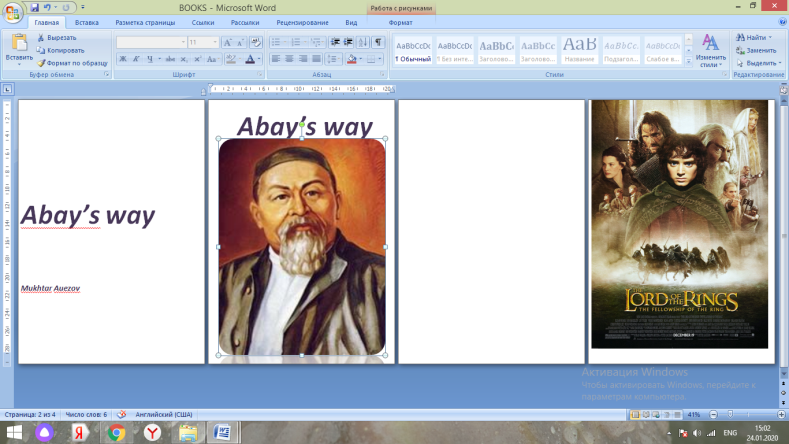| Org. moment: Greeting T: Good morning, pupils! S: Good morning, teacher! T: How are you? S: We are fine, thank you. Conversation with duty T:Who is on duty today? S: I`m on duty today. T:Who is absent? S: All are present. T: What date is it today? S: Today is the 29th of January. T: What day is it today? S: Today is Wednesday. Checking home task T: What was your home task for today? S: The home task was ex 5 p 65. Teacher checks their home task. Dividing into two groups using puzzles .Teacher gives puzzles which have a questions. Learners in groups try to answer the questions and stick the puzzles in order after that to guess the name of the team. Then teacher asks learners what they are going to learn today. Learners will guess that they will read and discuss different books, learn about famous writers. Then teacher and learners set the lesson objectives together. 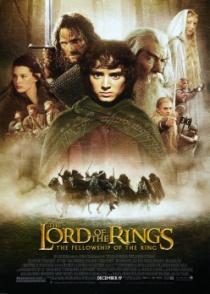
What is your favorite story? Who is your favorite author?Why? Who is your favorite character? What is your favorite genre? How many books have you read in your life? Does reading play an important part in your life? How much time do you spend on reading? Do you read for pleasure or for information? There are books that stay in our memory forever. Do you have such books? Why does it happen? What role do the books play in our life? How do they form our moral values? Do you sometimes read the same book again and again? Why? 5. Do you choose a book because your friend recommend it to you?
Teacher displays pictures of books and journals genres of Kazakh, Russian and English literature. Learners should look at the pictures and analyse the difference between them. This activity is aimed at developing learners’ critical thinking skills since learners are expected to analyse the pictures and understand Learners should say that these are different books, but the role of teacher is to encourage them to understand what genres of books are. Teacher shows the video about theme of the lesson. Teacher presents new words Autobiography-өмірбаян Biography-өмірбаян Fantasy-қиял Historical fiction-тарихи көркем әдебиет Informational-ақпараттық Adventure-шытырман Poetry-поэзия Realistic fiction-нақты көркем әдебиет Science fiction-ғылыми фантастика Traditional literature-дәстүрлі әдебиет (P) Learners work with new vocabulary first. They get a list of words, read the words with the teacher. Learners make 3-4 sentences with new words to show sentences of the words. Group work Match the types of films 1-10 with the description a-j. 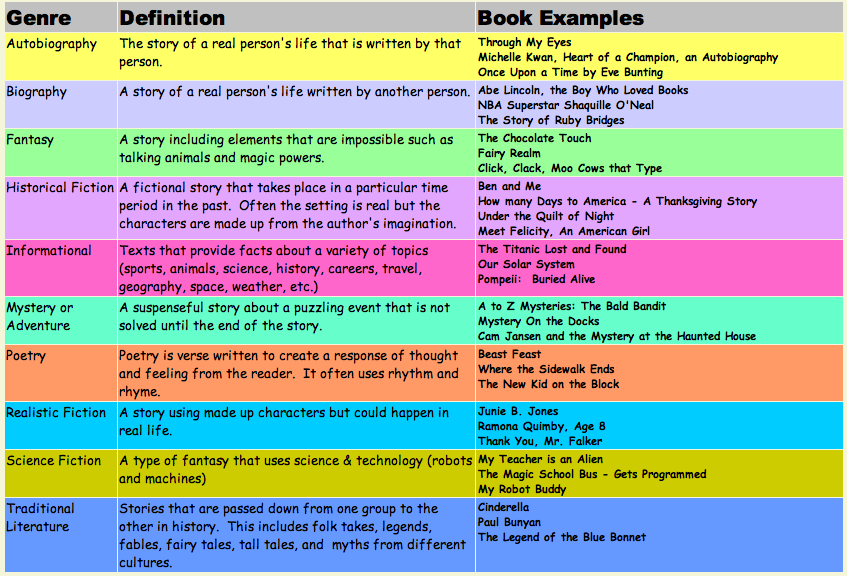 Physical minute Sing a song “We will rock you”
Reading skills: A teacher gives for learners text for reading and translating in groups .Group work of two read the text.
A fairy tale The Fisherman and the Fish. 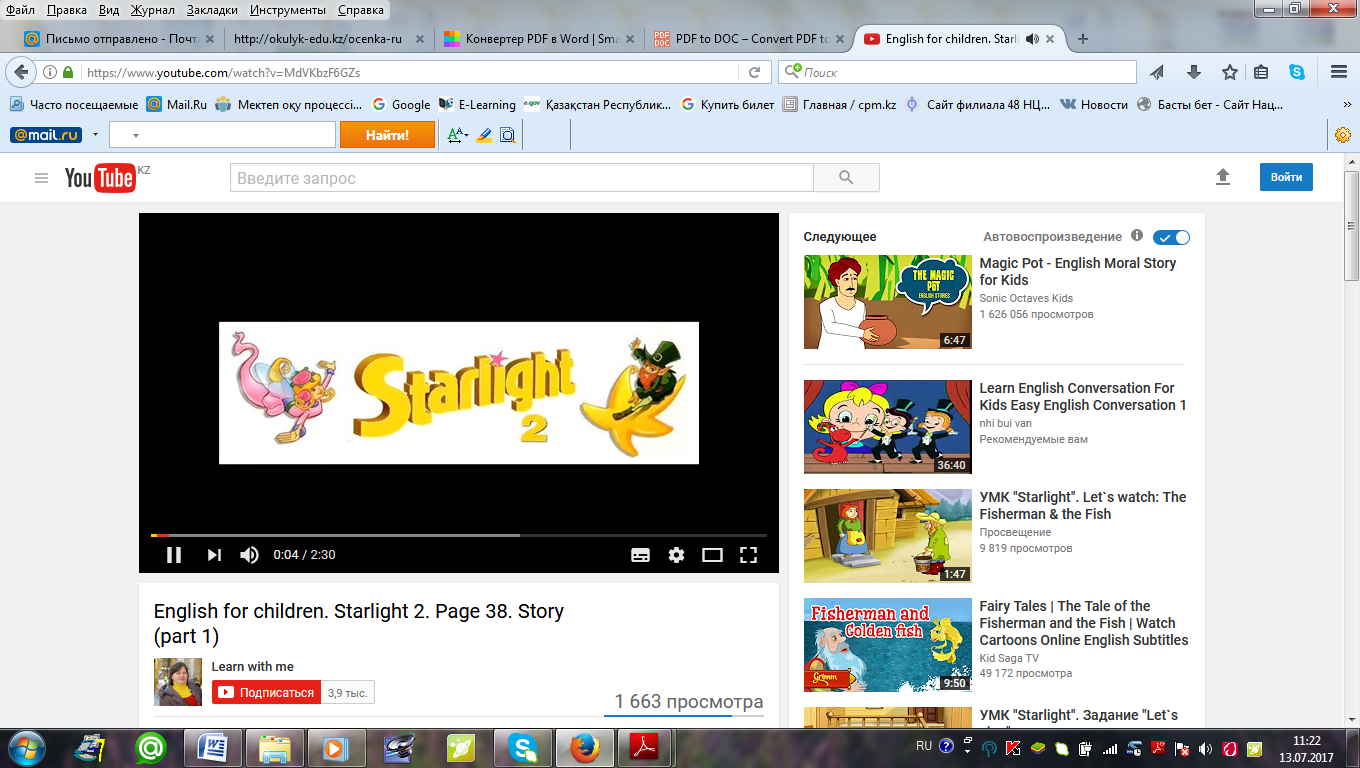 An old fisherman and his wife lived in a small house near the sea. They were very poor. One day, the fisherman caught a golden fish. “Please let me go,” said the fish, “and you can have anything you wish!” The fisherman was very surprised. The fish could speak! “Dear little fish,” said the old man, “I don’t want anything!” He let the fish go and walked home. He told his wife about the fish. “You fool!” she shouted. “We need a new bucket! Go back and ask for a bucket!” So the fisherman went back to the sea. It was calm. He called the golden fish and it swam up to him. “What do you want, good man?” it asked. “My wife wants a new bucket,” said the fisherman. “You can have your wish. Go home now,” said the fish and swam away. The fisherman went home and saw a new bucket, but his wife was still angry. She wanted a new house. So the fisherman went back to the sea and called the golden fish again. This time the sea was not so calm.
Tasks for more able learners : Read the story again and complete the sentences. 1 One day, the fisherman caught a golden fish but he ..................................................... . 2 The golden fish offered the fisherman a wish, but the old man didn’t ..................... ............................................................ . 3 When the fisherman told his wife about the fish, she called him a ............................... . 4 The fisherman‘s wife asked for a ................ ................................ with her second wish. 5 The fisherman‘s wife wished to be the Queen of the ........................................... . 6 At the end of the story, the fisherman and his wife only had ......................................
2)Abai Kunanbaiuly is one of Kazakhstan’s best-known writers. But he was more than that: he was a poet, translator, composer and philosopher. He was born near Semipalainsk in the Chingis Mountains in 1845, at a time when literature was becoming an important art form across the world. For his secondary education, he went to a religious school where he studied Oriental classical literature. He also learned a number of languages including Russian, Arabic and Persian, and read Russian authors such as Tolstoy, Dostoyevsky, Pushkin and Turgenev. However, he left school when his father decided to train him to take over his role leading the local community and to become head of the family. Although he accepted this role to begin with, it didn’t interest him, and when he was twenty-eight he decided he wanted to study Literature instead. Abai had a number of talents. He started writing poems when he was only twelve, but at first he did not sign them in his own name. IIn fact, the first poem he wrote in his own name was Summer, when he was only thirty-one. Like many of his poems, it was about Kazakhstan and its people. Abai also translated a number of poems from some of the great European poets, such as Goethe, Byron and Pushkin, the Russian poet. His translation of Eugene Onegin was one of fifty classic Russian works of literature he translated into Kazakh.
Read the text. Are the sentences true or false? 1. Abai Kunanbaiuly studied Russian writers at primary school. 2 .His father was important in the local town. 3 .When he was twenty-eight, he changed career. 4. He wrote the poem Summer when he was twelve. 5. He wrote fifty books in Russian. 6. He changed how people learned and enjoyed stories in Kazakhstan.
Put the speech in the dialogue in correct order. “At library” Teacher gives a lollipops to the best group and the sweets to the second group. Home task : to describe their favourite book and to learn by heart new words. Reflection  I like the lesson I like the lesson 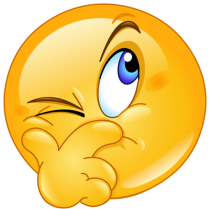 I have some questions I have some questions
| 


 I like the lesson
I like the lesson I have some questions
I have some questions 
